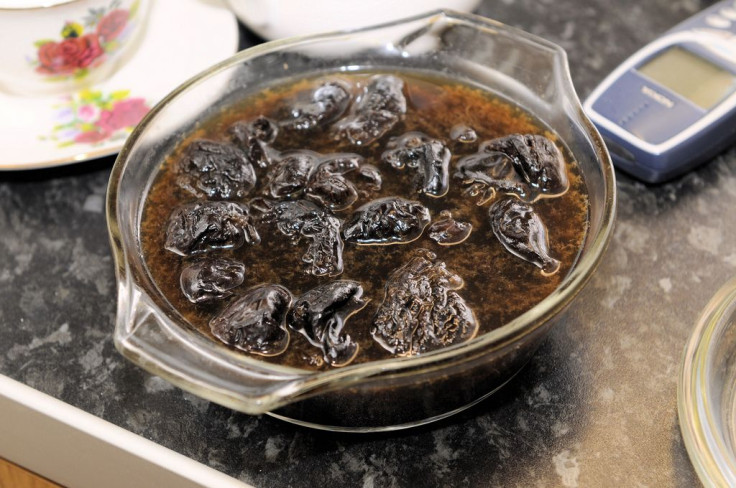Dried Fruit vs. Fresh Fruit: Why Eating Dried Plums (Prunes) Can Lower Your Risk For Colon Cancer

Dried fruit is just regular fruit without its original water content, so why do some nutritional experts endorse dried fruit while others recommend fresh fruit? A recent study presented at the 2015 Experimental Biology Conference in Boston has found that eating dried plums can help lower our risk for colon cancer by facilitating the retention of gut bacteria in the colon.
Colon cancer is the third leading cause of cancer-related death in the United States among men and women. Recent studies have shown that certain diets can affect our risk for colon cancer. For example, a diet high in red meats can increase colon cancer risk while a diet high in fruits, vegetables, and whole grains can reduce colon cancer risk.
“While additional research is needed, the results from this study are exciting because they suggest that eating dried plums may be a viable nutrition strategy to help prevent colorectal cancer,” said Dr. Nancy Turner, research professor, Department of Nutrition and Food Science, Texas A&M University, in a statement.
Dried Plums Ward Off Colon Cancer
Turner and her colleagues examined the effect phenolic compounds had on lab rats with colon cancer. The phenolic compounds found in dried plums provide a serving of antioxidants that neutralize the oxidant effect of free radicals which damage DNA. Rats used by the research team were either fed a balanced diet with dried plums or a balanced diet without dried plums. Both diets had the same amount of calories and macronutrients. Researchers examined intestinal contents and tissues from different areas of the colon.
Although proportions of gut bacteria in the proximal colon were not affected by the dried plum diet, it did impact levels of two major phyla of bacteria in the gut. Rats that consumed the dried plum diet ended up with increased levels of Bacteroidetes and reduced levels of Firmicutes in the distal colon. These two groups of bacteria are considered the most common in the gut. Eating dried plums also reduced levels of aberrant crypt foci, which are often a strong indicator of cancer development.
"From this study we were able to conclude that dried plums did, in fact, appear to promote retention of beneficial microbiota and microbial metabolism throughout the colon, which was associated with a reduced incidence of precancerous lesions," Turner added.
Dried Plums Or Prunes?
According to the California Dried Plums Board, which helped fund this study, all prunes are plums, but not all plums are prunes. A plum’s high sugar content allows it to be dried without fermentation. Research has shown that customers in the U.S. respond more favorably to the name dried plums as opposed to prunes. They are still referred to as prunes outside of the U.S.
Dried plums, like all dried fruit, drain their water content by one of three methods: natural drying, sun drying, and dehydrators. So if dried plums are just plums with the water taken out of them, why do they lower our colon cancer risk while fresh plums don’t? Not only does dried plum retain both soluble and insoluble fiber from its original form, but it also contains more sorbitol than fresh plums. Sorbitol is an unfermentable sugar that increases our levels of desirable intestinal microorganisms, such as phenolic compounds.
Source: Experimental Biology Conference. 2015.
Published by Medicaldaily.com



























